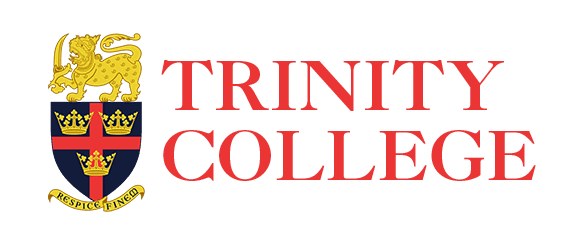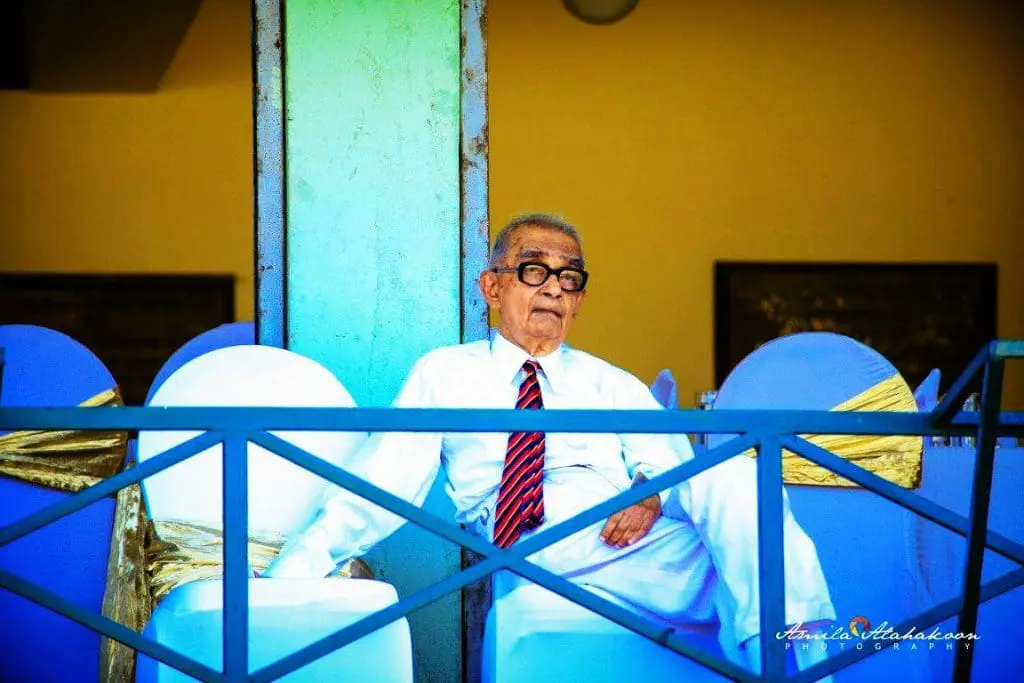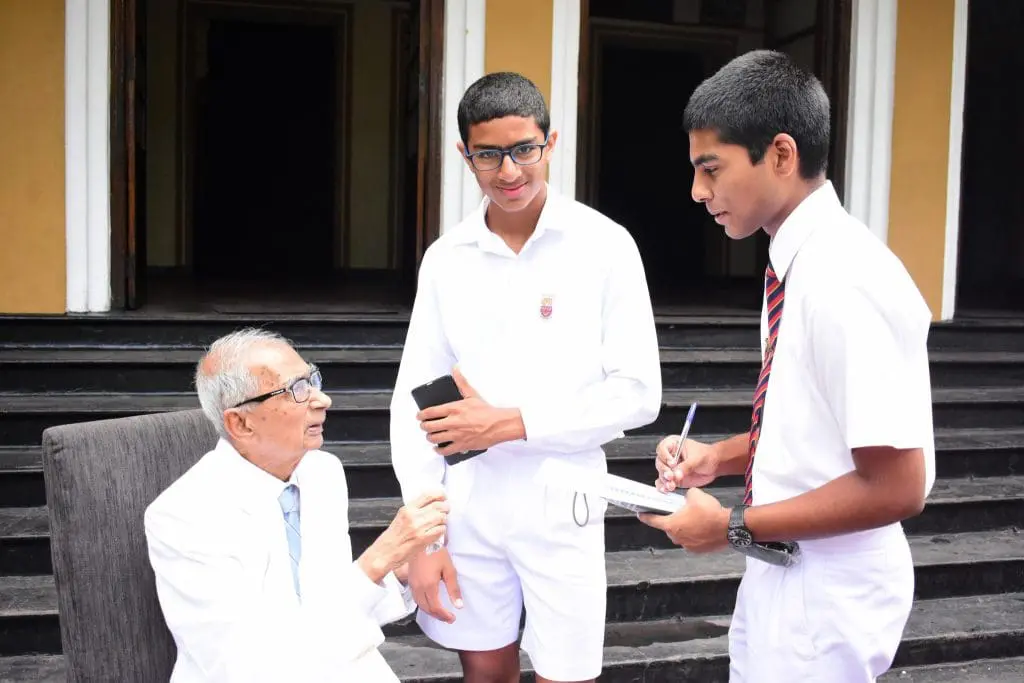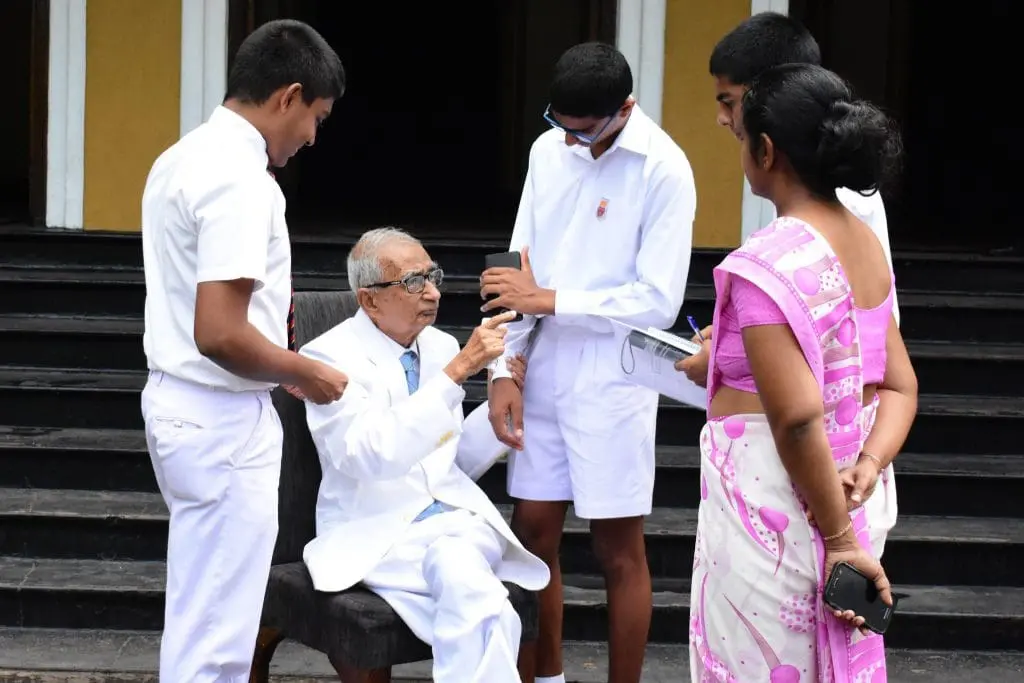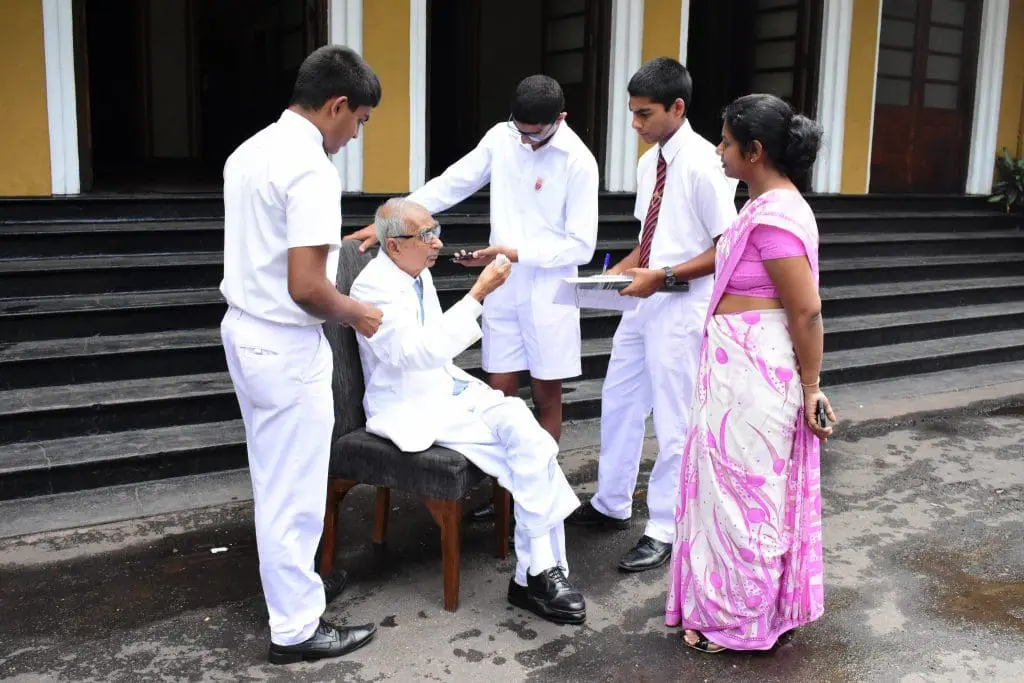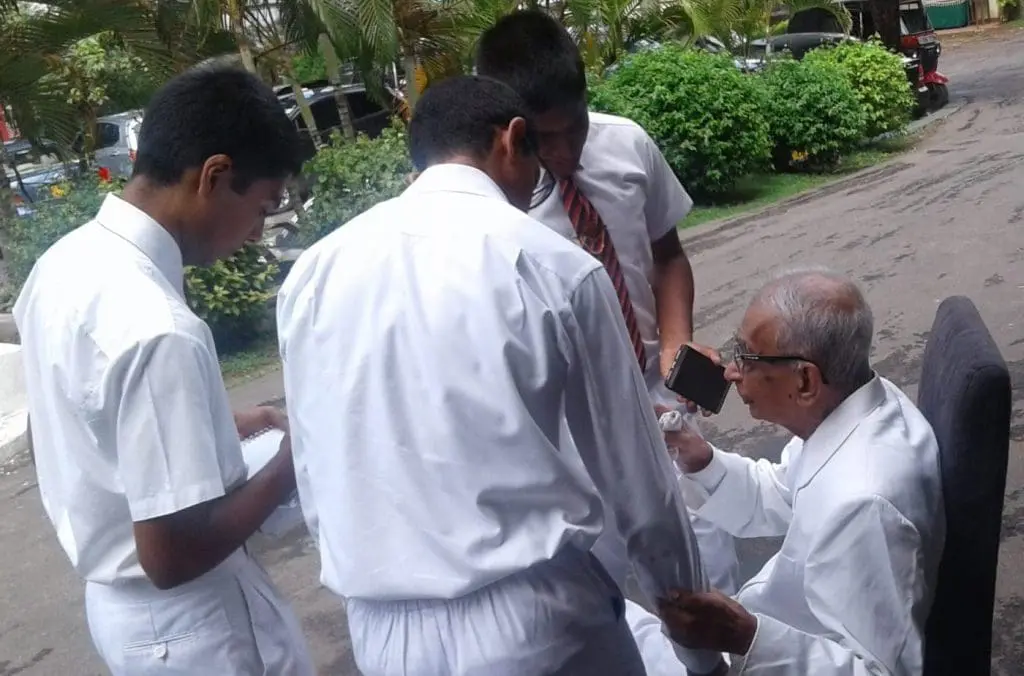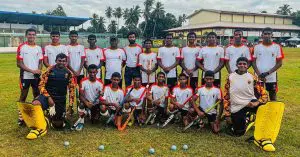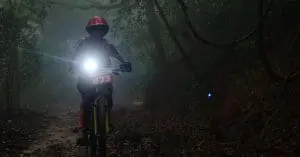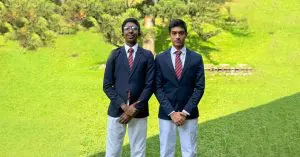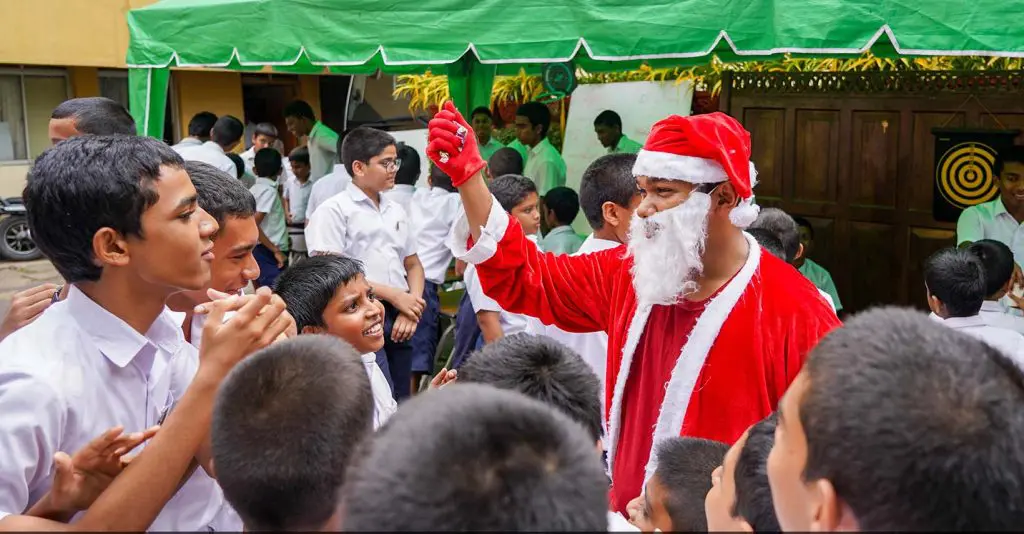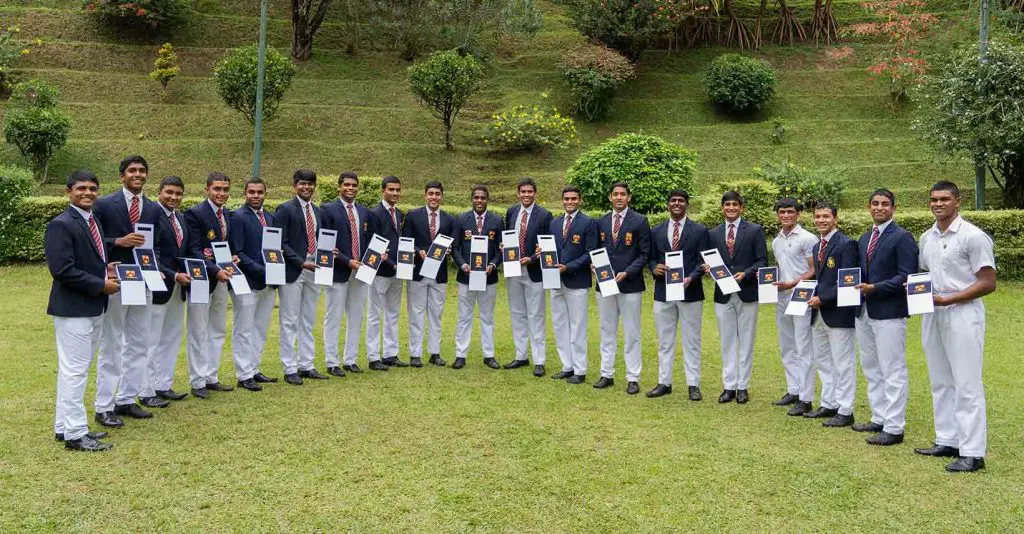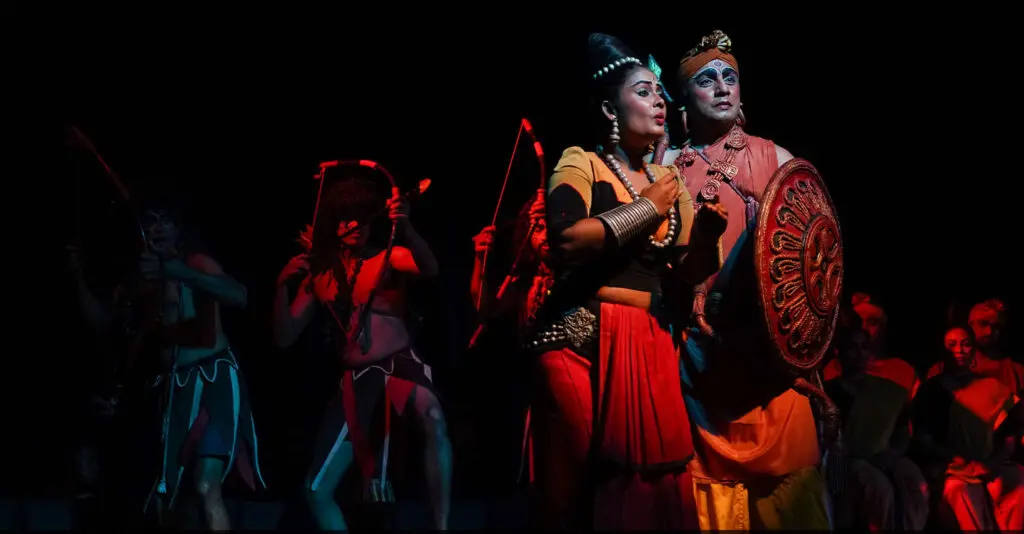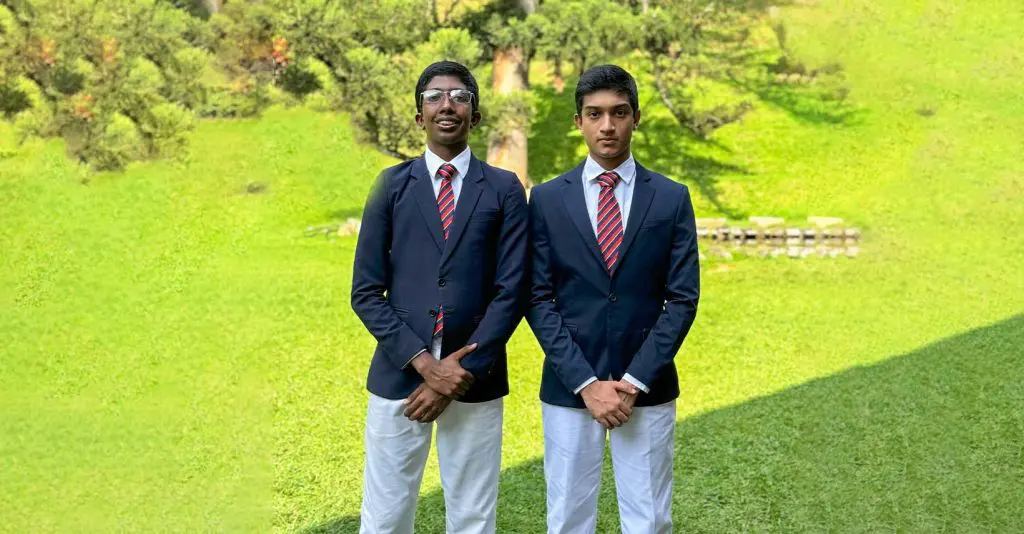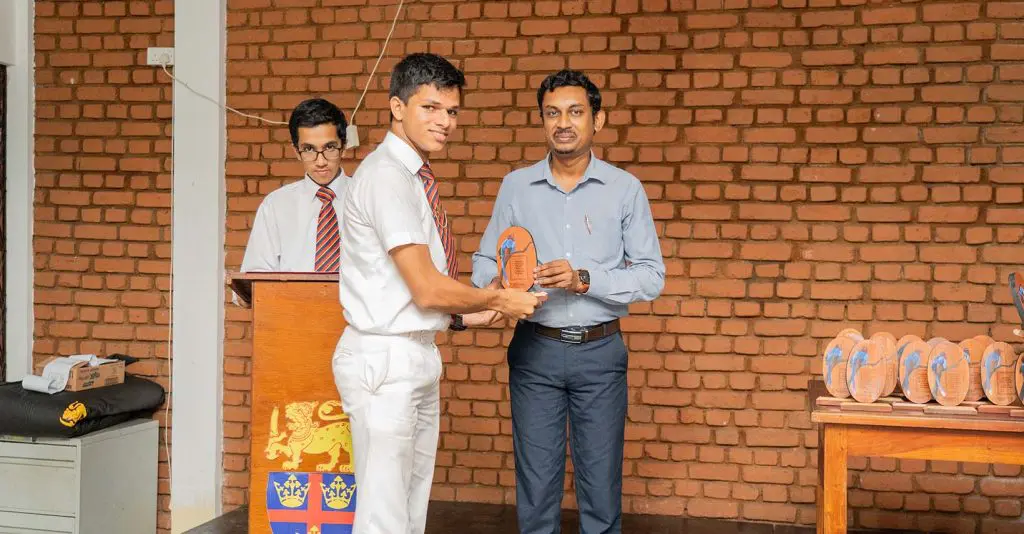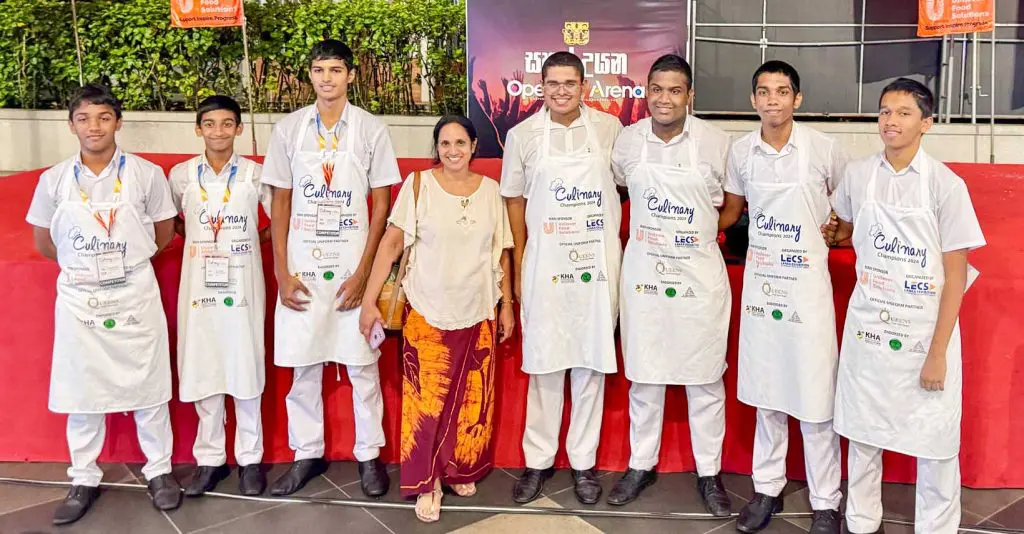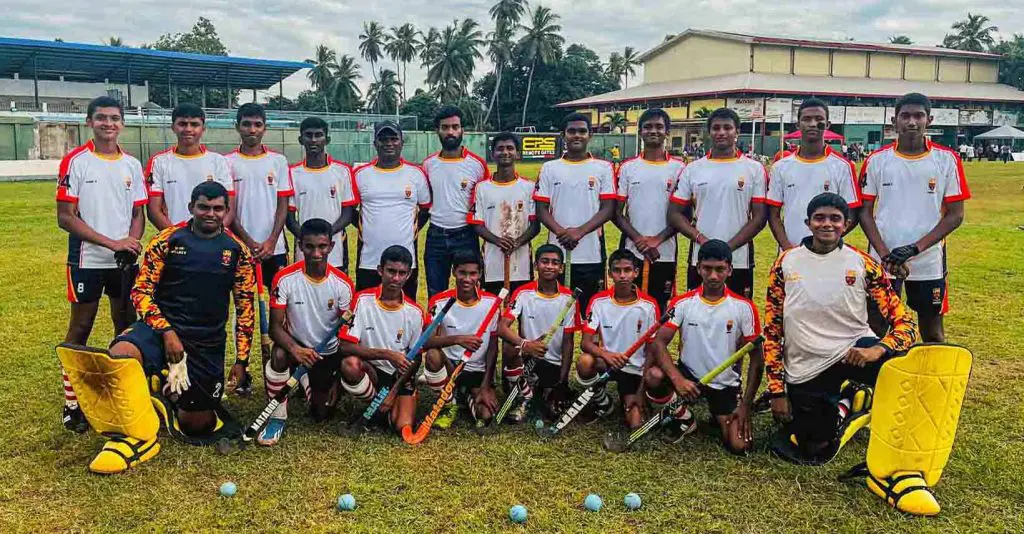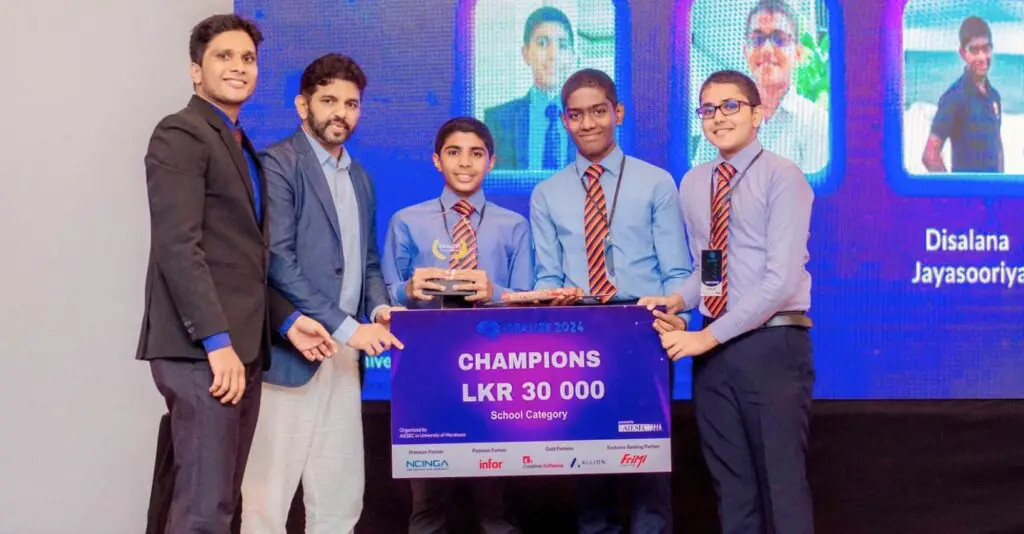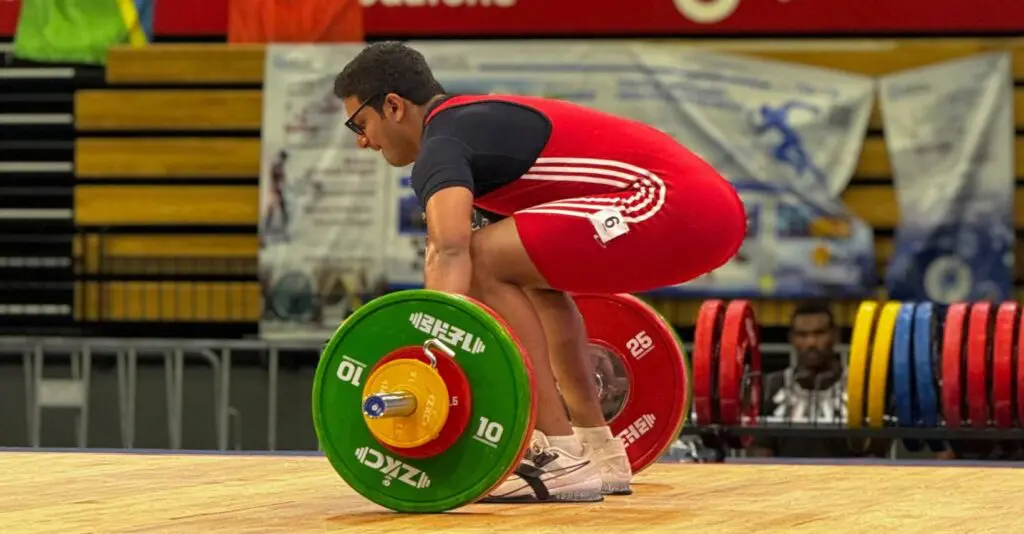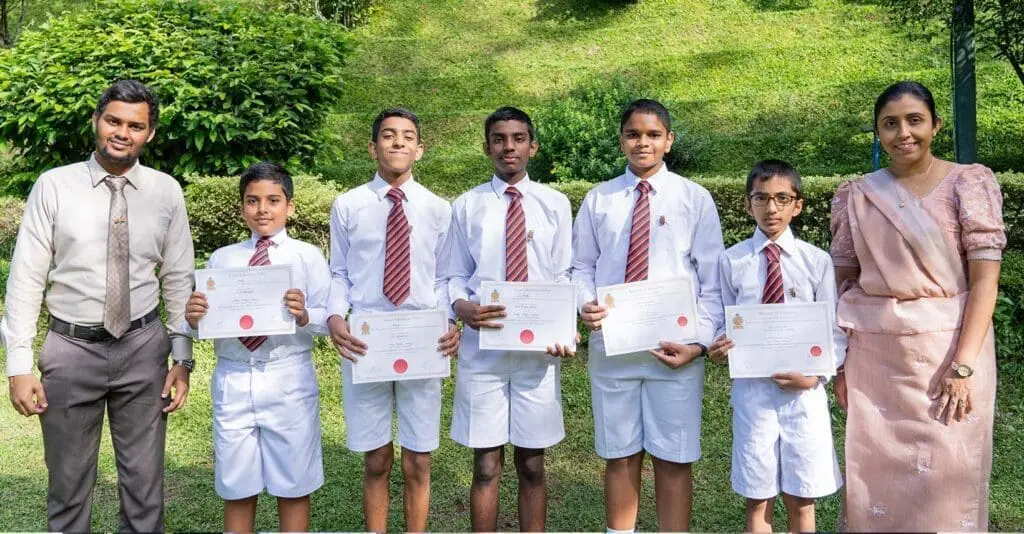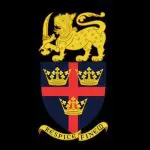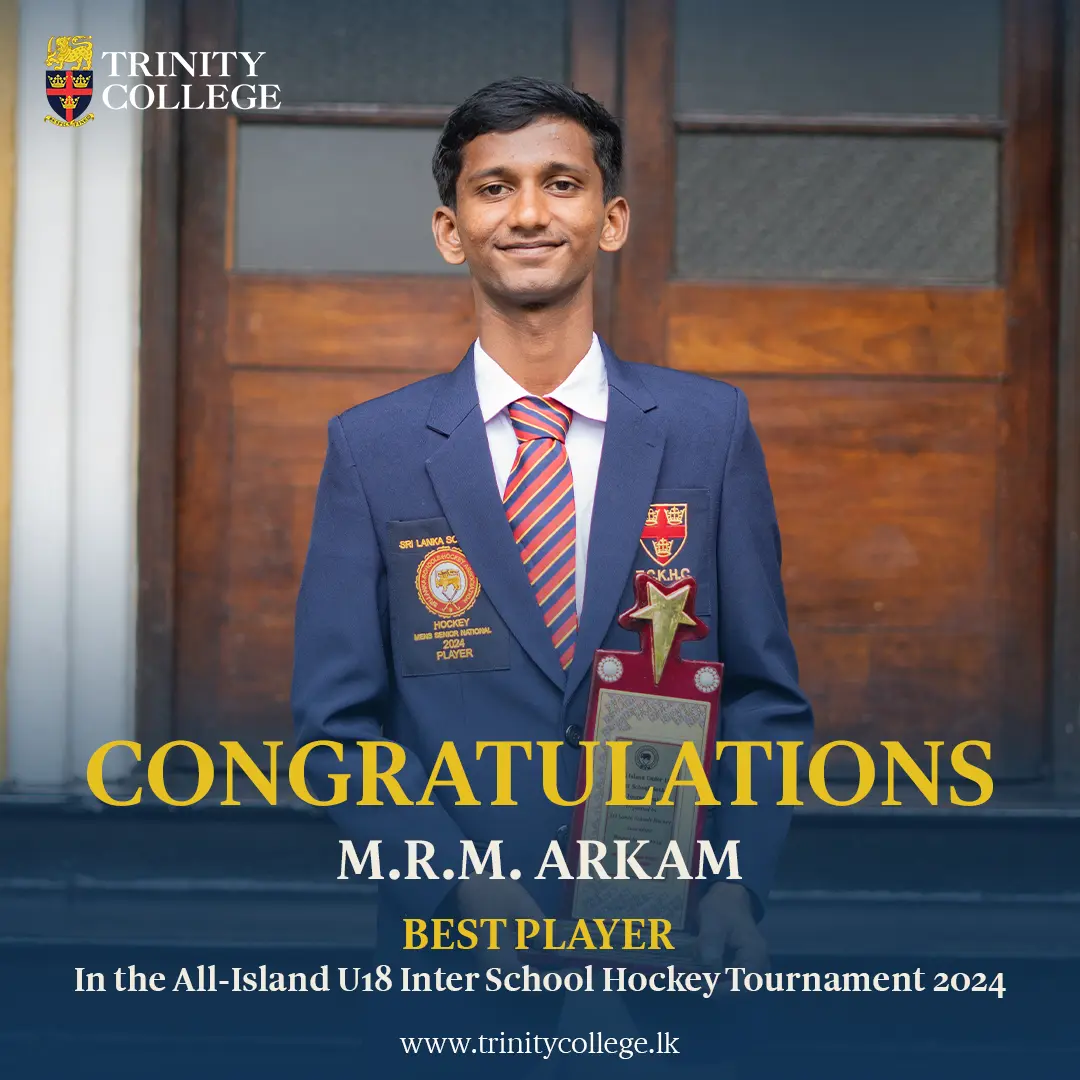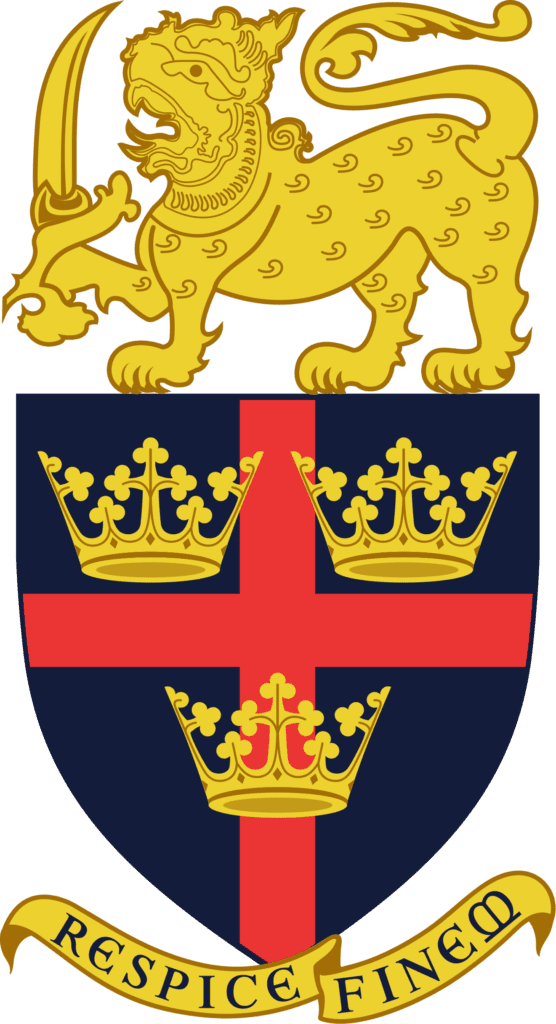Mr Lionel Perera, as the oldest living member of the Trinity family, has established himself amongst those who attend the numerous events in the Trinity calendar, especially cricket and rugby encounters along with events held in the Chapel. While speaking to Mr Perera, we realized that he is a fount of information on Trinity history and culture. It would be a shame not to share these lovely stories, and with that in mind, we bring to you an interview of this distinguished personality. He joined us on 7th of November at his alma mater for an illuminating session.
Could you tell us about yourself as a Trinitian?
I entered College on the 31st of May 1928 and the Principal was Rev. John MacLeod Campbell. I left on the 9th of August, 1943. So, I knew no other school. I was at Trinity right throughout.
After Mcleod Campbell retired in 1935, he was succeeded by Rev. R. W. Stopford, who later became Bishop of London. So, he was at Trinity only for about 5 years and then he retired.
I have told this to so many people but I’ll repeat it again:
Shortly after I left College, I met an old boy and he asked me about my career at Trinity. He asked me which house I had been in. I said Garret. Then he asked me if I had played any cricket in College. I said the only cricket I had played was rubber ball cricket in the quadrangle. When he asked me if I had played any rugger, I said I have not even handled a rugger ball. When he asked me if I had taken part in athletics, I said no, not even in a house race. In our time, the house race was the race in which non-athletes competed. Then he looked me up and down and said “I say, you must have been one of those ‘soththa’ day boys who just came to school and went back home! “
How were sports at College in your time?
The first time that we were beaten by a school at rugger was in 1932. I still remember the headlines in the ‘Sunday Times’; ‘Trinity College Beaten at Last: Splendid Victory for Zahira’. That was 86 years ago.
The first time after I came to College that we had an unbeaten cricket team was in 1937. Our captain was O. L. Izadeen. We beat Wesley by an innings. Wesley were all out in the first innings by 36 runs. We beat S. Thomas’ by 8 wickets at Mt. Lavinia. My God! They had us by six runs in the first innings; second innings they were all out for 22 runs, and we won by 8 wickets.
Then that year we beat Royal, S. Thomas’. Josephian and Antonian matches rain interfered with play on both days and both matches were drawn.
Then in 1939, the Captain was G. P. Schoorman. In all my years at Trinity, that was the only year that we beat St. Joseph’s. And that was remarkable because we didn’t even have our captain. Our Antonian match that year was won by an innings, and was over by the lunch interval, and our star bowler got a hat-trick in both innings! The first Trinity- Antonian match played at Katugastota was in 1938 and we won by six wickets.
How was the discipline?
My gosh! Trinity boys were gentlemen, men! I don’t know whether this is true, but one of my friends once told me that a British Governor had said “Men of Royal and men of S. Thomas’, but gentlemen of Trinity! ”
What do you remember of the Staff?
They were quite different. We had a number of English masters on the staff at that time. Now, before my time at Trinity, there was a Rev. Pilcher. He was a great man, for social service. He used to take the boys out from the Social Service Union to the Katukele slums and he used to get into the drain first with his broom, clean it, then give it to the boy behind him and tell him “Now, man, it’s your turn! “. A great gentlemen to the Mahaiyawa community, and when he left it was they who missed him.
Shortly after Pilcher came to Trinity, he had expressed a desire to study Sinhala, and so a Sinhala teacher was arranged for him. One day, after the lesson was over, the teacher respectfully took his leave of Pilcher. He said “Avasarai”. Now, the word ‘avasarai’ was new to Pilcher. He immediately handed his umbrella to the teacher and said “Awwa sarai nam, menna kude.”
What were the clubs and societies like?
As I told you, I was one of those day boys, I never joined but we had DSLU which was the Day Scholar’s Literary Union. Then of course you had the Houses also and we had the Astronomical Society and Trinity College Literary Union.
(How famous was the TCLA during that time?) That was very good, we had our Annual Debate against S. Thomas’. So many people came, but I’m afraid I never attended any of those! So many teachers and sometimes visitors used to speak at the TCLA.
How was going to school during the War?
I left College in 1943, while WWII was still in progress. Our principal at that time was Mr Simithraaratchi. You know, the whole of the Junior School was commandeered by the government for the War! I don’t know how they managed to accommodate all the school staff and the boarders! The whole of the Junior School was taken over!
How was the boarding during you time?
I was never a boarder! (Laughs)
How did you see the boarders as a Day Scholar?
In my time there were so many boarders in my class.
(How was their behaviour?) In every school there are rioters you know? You can’t say that they were all saints! You must have your fun.
What is your fondest memory of College?
Well, my fondest memory is that my parents sent me to the best school of all! There are others who may not agree with that, but one of my greatest joys is that I had a son whom I was able to send to Trinity.
There are several loyal old boys who for different reasons have had to send their sons to other schools, but for me to have sent my son to any school but Trinity would have been a real heartbreak.
What did the Chapel look like in those days? Was it the same?
I was confirmed in the College Chapel on the 16th of March 1940 by Bishop Horsley. He was the English Bishop of Colombo. There was no Diocese of Kurunegala at that time. Stopford was the Principal.
In 1935 just before Rev. Campbell left the Chapel was dedicated. (The current chapel?) It was the College Chapel and it was on a Sunday. It was the Chapel of the Light of the World. I know in the Sunday Times the whole of one page was devoted to this dedication.
What was the duration of the school day?
From 8 o’clock till 3 o’clock. But earlier when we were in the Junior School I know school used to end at 2.20 in the evening.
How were the buildings?
Well, when we joined College in Kindergarten this new Kindergarten block was not there.
I remember there was a kottamba tree, and our second standard was under the kottamba tree.
How was the School Officer’s Guild? Did they help in maintaining discipline?
At that time, prefects, monitors, they were allowed to carry the cane and allowed to cane at that time.
(Did they help to uphold the discipline of the school?) Not really. They used to discipline the boys, they didn’t want our help, but during my time at Trinity, there were several boys from other countries, from Siam, India, and Africa.
Now, when I was in College, the pocket money that boarders used to get was 25 cents a week. The richest boy in College was a Burmese boy, his father owned a rice mill. His pocket money was 1 rupee a week and people used to say ‘My God! That chap is getting 1 rupee a week!’
Those days we had what were called “squares” in the tuck shop, 3 cents a square for aluwa, dodal. And, the toffee was 1 cent each.
How much did you pay for school fees?
When I joined College in the Kindergarten, the school fee was 5 rupees and 50 cents. Then in upper Kindergarten it was Rs 6.50, second standard Rs 8.50, third Rs 9.50, fourth 10.50, and I think the highest fee was in the London Matriculation which was 19 rupees or 20 rupees. Those were the days!
As we wound up our interview, and Mr Lionel Perera was proceeding to his vehicle, he left us with a final piece of advice;
“Naki venevata behethak na!” (There is no cure for old age!)
Interviewed by Abidh Jameel, Kavan Ranaraja and Sheshan Abeysekara
Special thanks to Mrs Thilini Sumanasekara (Trinity College Archives)










